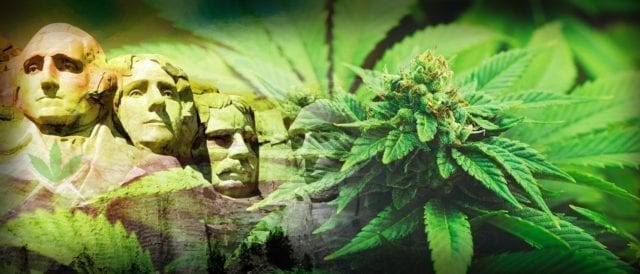
It’s just after 4/20 and times are changing! Love it or hate it, everyone has an opinion on weed legalization. What about the leaders of the country? Let’s explore the latest presidents and their approach to weed.
Clinton [1993-2001]
“When I was in England, I experimented with marijuana a time or two, and I didn’t like it. I didn’t inhale and never tried it again.”

Crime Control
The ‘Violent Crime Control and Law Enforcement Act’ of 1994 was a giant [$30bn] crime-control bill. This act included many provisions. A “three strikes” mandatory life sentence was implemented for repeat offenders. $9.7bn was spent on funding for prisons. 100,000 new police officers were hired. Clinton dedicated $6.1bn to ‘prevention programs’, but most of the funds went to disciplinary rather than rehabilitative or preventative measures.
According to the BBC; “Critics say the bill decimated communities of color and accelerated mass incarceration. Proponents say it contributed to the precipitous decline in violent crime in the US that began in the mid-1990s.”
Belated Support
When asked about Marijuana during a Rolling Stone interview in 2000, Clinton said;
“I think that most small amounts of marijuana have been decriminalized in some places, and should be…We really need a re-examination of our entire policy on imprisonment. Some people deliberately hurt other people and them out to be in jail because they can’t be trusted on the streets…but a lot of people are in prison because they have drug problems or alcohol problems and too many of them are getting out, particularly out of state systems, without treatment, without education skills, without serious efforts at job placement.”
NORML Foundation Executive Director Allen St. Pierre responded;
“President Clinton’s incredibly belated support for decriminalizing marijuana is a bittersweet moment for marijuana law reform supporters…During Clinton’s eight-year term in office, we witnessed the largest number of marijuana arrests in our history — over 4,175,357 Americans were arrested on marijuana charges between 1992-99.”
Bush [2001-2009]
![Bush [2001-2009]](https://dabconnection.com/wp-content/uploads/2017/04/george-bush.jpg)
“I wouldn’t answer the marijuana question,” he said.
“You know why? Cause I don’t want some little kid doing what I tried.”
“You gotta understand, I want to be president, I want to lead,” he continued.
“Do you want your little kid to say, ‘Hey daddy, President Bush tried marijuana, I think I will?”
Bush campaigned saying medical marijuana should be left up to the states. A position he quickly pivoted on after his election in 2000. The Bush administration ended up permitting multiple raids on both dispensaries and patients in legal states.
Rapid Escalation
According to the Drug Policy Alliance;
“The era of George W. Bush witnessed the rapid escalation of the militarization of domestic drug law enforcement. By the end of Bush’s term, there were about 40,000 paramilitary-style SWAT raids on Americans every year—mostly for nonviolent drug law offenses, often misdemeanors.”
George W. Bush arrived at the White House as the drug war was dwindling. Nevertheless, he chose to allocate more money to it.
Operation Pipe Dreams
‘Operation Pipe Dreams’ was the code-name for the 2003 nationwide investigation of the illegal sale of drug paraphernalia. Out of 55 people involved in raids, only marijuana icon Tommy Chong would experience incarceration. Chong was charged with financing and promoting ‘Chong Glass/Nice Dreams’, a family company. The Government seemed to use jailing Chong as an example for cannabis users nationwide.
The final total of necessary revenue used to fund this federal disaster was a monstrous $12 million. The resources of 2,000 law enforcement officers were also used in this ridiculous show of government power.
John Walters held the position of ‘Director of the White House Office of National Drug Control Policy’ from 2001-2009. As the nation’s “Drug Czar” Walters was responsible for the coordination of all aspects of federal anti-drug policies and spending. Focusing on marijuana during the Bush administration, a major campaign to promote student drug testing was launched. Rates of illicit drug use remained persistent and fatalities due to overdose grew rapidly.
Obama [2009-2017]
“When I was a kid I inhaled frequently. That was the point.”
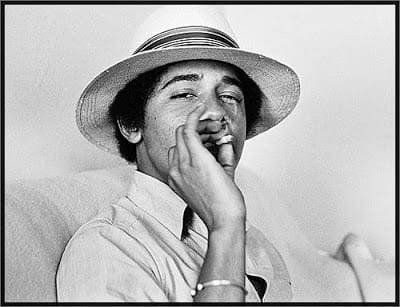
Unlike Bill Clinton, Obama was open about using marijuana (and cocaine) when he was young. While running in 2008, Obama casually admitted; “When I was a kid I inhaled frequently. That was the point.” It was a rocky start, but in the end, Obama was the most weed-friendly president the USA ever had.
![Obama [2009-2017]](https://dabconnection.com/wp-content/uploads/2017/04/obama.jpg)
Breaking Promises
During Obama’s first term, the Drug Enforcement Administration (DEA) wreaked havoc on medical marijuana communities. California, Colorado, and Montana were all targets. Despite his campaign promise to stop targeting state-legal pot clubs, Obama came down hard on weed.
In September of ‘12, the DEA tried to shut down 70+ medical marijuana dispensaries around Los Angeles. American’s for Safe Access outlined money spent on weed investigations, reported in 2013. Money was used to “investigate, raid, arrest, prosecute, and imprison hundreds of medical marijuana patients and their providers”;
- The Obama Administration has outspent the Bush Administration by 120 Million in just 4 ½ years
- Under the Obama Administration, DEA has spent 1-4% % of its budget on the medical cannabis war
A Softer Approach
With Obama’s second term, came a softening of the crackdown on medical marijuana. Restrictions were put on the Department of Justice, to keep them from continuing the attack on medical marijuana providers. Under Attorney Generals Eric Holder and Loretta Lynch, the Justice Department commonly declined to contest state marijuana laws. Legal marijuana was thus able to grow quicker in the US over recent years.
In December ’16, the DEA took another swipe at marijuana, just before Obama’s departure. An amendment was made to the classification of weed as a Schedule I drug. Now, ALL EXTRACTS, including cannabidiol (CBD), are listed up there with heroin. CBD is known to help thousands of epilepsy sufferers control seizures. Even so, it has been dubbed as a “drug with no medical use”.
Evolving Point of View
When asked by Rolling Stone about the War on Drugs (Nov 2016), Obama said this on marijuana:
“I do believe that treating this as a public-health issue, the same way we do with cigarettes or alcohol, is the much smarter way to deal with it.”
Obama’s failure to reschedule marijuana to a lower schedule under the federal Controlled Substances Act was a big disappointment. People were hoping he would have done more than he did over two terms. Obama did however grant clemency to more nonviolent drug offenders than any other president in history. He also signed the 2014 Hemp Farm Bill which allowed the cultivation of hemp for the purpose of scientific study, which in turn provided the opportunity for the 2018 Hemp Farm Bill to legalize low-THC hemp and derivative cannabinoids.
Trump [2017…]
“In terms of marijuana and legalization, I think that should be a state issue, state-by-state.”
![Donald Trump [2017 .... to be continued]](https://dabconnection.com/wp-content/uploads/2017/04/donald-trump.jpg)
The Justice Department seems ready to jump on board and reverse the Obama administration’s comparatively lax policy toward state-regulated marijuana. There doesn’t appear to be any clear plans surrounding marijuana, but Sean Spicer has mentioned that he expects states to be subject to “greater enforcement” of federal laws against marijuana use.
The Trump administration may not be able to stop the industry from developing, but they can make it much tougher to navigate. Plans to halt this growing green giant might include targeting key players with raids, property seizures, or jail time. Both users and distributors risk being prosecuted or imprisoned, even if complying with state law.
There could potentially be a disturbing transformation within the rapidly growing legal and regulated marijuana industry – watch this space.


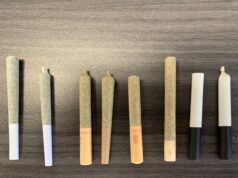
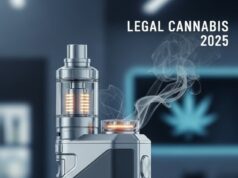
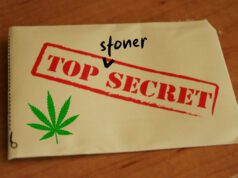
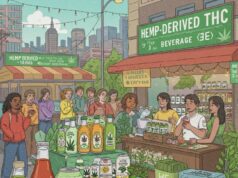

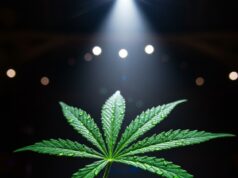

Nice post. I learn something totally new and challenging on websites
I do not even understand how I ended up here, but I assumed this publish used to be great
This was beautiful Admin. Thank you for your reflections.
Great information shared.. really enjoyed reading this post thank you author for sharing this post .. appreciated
I really like reading through a post that can make men and women think. Also, thank you for allowing me to comment!
Hi there to all, for the reason that I am genuinely keen of reading this website’s post to be updated on a regular basis. It carries pleasant stuff.
Awesome! Its genuinely remarkable post, I have got much clear idea regarding from this post
For the reason that the admin of this site is working, no uncertainty very quickly it will be renowned, due to its quality contents.
You’re so awesome! I don’t believe I have read a single thing like that before. So great to find someone with some original thoughts on this topic. Really.. thank you for starting this up. This website is something that is needed on the internet, someone with a little originality!
Nice post. I learn something totally new and challenging on websites
ขายต้นไม้หลากหลายชนิดในจังหวัดภูเก็ต แต่งบ้านให้น่าอยู่ในแบบของคุณ
หนึ่งในคุณสมบัติที่ทำให้ผู้เล่นไว้วางใจมากที่สุด คือ ระบบฝากถอนอัตโนมัติ ที่ทันสมัยและแม่นยำ ใช้เวลาเพียงไม่กี่วินาทีต่อรายการ โดยไม่ต้องผ่านแอดมินหรือรอคิว ซึ่งเป็นข้อแตกต่างที่เห็นได้ชัดจากเว็บทั่วไป การที่ระบบสามารถทำธุรกรรมได้อย่างต่อเนื่องและไม่มีสะดุดนั้นเกิดจากการเชื่อมต่อกับธนาคารชั้นนำโดยตรง พร้อมระบบการบันทึกประวัติธุรกรรมย้อนหลังที่ตรวจสอบได้จริง ช่วยสร้างความมั่นใจให้กับผู้เล่นว่าเงินทุกบาททุกสตางค์ของพวกเขาปลอดภัยไร้กังวล ดังนั้น หากคุณกำลังมองหาแพลตฟอร์มที่มี ระบบฝากถอนอัตโนมัติ ที่รวดเร็วและเชื่อถือได้ UFABET คือคำตอบที่ชัดเจน
ทุกเรื่องที่ควรรู้เกี่ยวกับการแทงบอลออนไลน์
อีกหนึ่งความโดดเด่นที่ไม่ควรมองข้ามคือการออกแบบระบบให้เหมาะสมกับทั้งผู้เล่นมือใหม่และมืออาชีพ ไม่ว่าคุณจะเพิ่งเริ่มต้นเส้นทางในวงการเดิมพัน หรือเป็นเซียนที่มีประสบการณ์มากมาย ยูฟ่าเบท ดีกว่าเว็บอื่นยังไง ก็สามารถสัมผัสได้จากอินเทอร์เฟซที่ใช้งานง่าย พร้อมด้วยฟีเจอร์สนับสนุนการเล่น เช่น โหมดทดลองเล่นที่เปิดให้ผู้เล่นหน้าใหม่ได้ฝึกฝนก่อนลงทุนจริง และระบบจัดการงบประมาณแบบอัจฉริยะ ที่ช่วยให้ควบคุมการเงินอย่างมีประสิทธิภาพ ในขณะที่ผู้เล่นระดับสูงจะได้รับสิทธิพิเศษเฉพาะกลุ่มผ่านโปรโมชั่นที่คัดสรรมาเฉพาะ เพื่อมอบความคุ้มค่าสูงสุดอย่างแท้จริง
หนึ่งในคุณสมบัติที่ทำให้ผู้เล่นไว้วางใจมากที่สุด คือ ระบบฝากถอนอัตโนมัติ ที่ทันสมัยและแม่นยำ ใช้เวลาเพียงไม่กี่วินาทีต่อรายการ โดยไม่ต้องผ่านแอดมินหรือรอคิว ซึ่งเป็นข้อแตกต่างที่เห็นได้ชัดจากเว็บทั่วไป การที่ระบบสามารถทำธุรกรรมได้อย่างต่อเนื่องและไม่มีสะดุดนั้นเกิดจากการเชื่อมต่อกับธนาคารชั้นนำโดยตรง พร้อมระบบการบันทึกประวัติธุรกรรมย้อนหลังที่ตรวจสอบได้จริง ช่วยสร้างความมั่นใจให้กับผู้เล่นว่าเงินทุกบาททุกสตางค์ของพวกเขาปลอดภัยไร้กังวล ดังนั้น หากคุณกำลังมองหาแพลตฟอร์มที่มี ระบบฝากถอนอัตโนมัติ ที่รวดเร็วและเชื่อถือได้ UFABET คือคำตอบที่ชัดเจน
ระบบรักษาความปลอดภัยยอดเยี่ยม ทำให้มั่นใจได้ทุกครั้งที่เข้าใช้งาน
การฝากถอนเงินรวดเร็วทันใจ ไม่ต้องรอนาน ทำให้การเล่นเป็นไปอย่างต่อเนื่อง
เป็นเว็บพนันที่ดีที่สุดเท่าที่เคยเจอมา แนะนำให้เพื่อน ๆ มาเล่นกันเยอะ ๆ เลย
เป็นเว็บพนันที่ดีที่สุดเท่าที่เคยเจอมา แนะนำให้เพื่อน ๆ มาเล่นกันเยอะ ๆ เลย
ทีมงานมืออาชีพ ประเมินหน้างานฟรี
เป็นเว็บพนันที่ดีที่สุดเท่าที่เคยเจอมา แนะนำให้เพื่อน ๆ มาเล่นกันเยอะ ๆ เลย
ความเป็นธรรมในการเล่นสูง รู้สึกปลอดภัยและมั่นใจในทุก ๆ เกมที่ลงเดิมพัน
ทีมงานท้องถิ่น เข้าใจพื้นที่ ทำงานรวดเร็ว
ผลงานการจัดสวนของ สวนอรุณี แสดงให้เห็นถึงความประณีตและความใส่ใจในทุกรายละเอียด ทำให้สวนดูมีชีวิตชีวา
ระบบรักษาความปลอดภัยยอดเยี่ยม ทำให้มั่นใจได้ทุกครั้งที่เข้าใช้งาน
ทีมงานบริการลูกค้าเป็นเลิศ ตอบคำถามรวดเร็วและให้ความช่วยเหลืออย่างมืออาชีพ
การมีระบบการค้นหาเกมที่ง่ายและสะดวก ช่วยให้ผู้เล่นสามารถค้นหาเกมที่ต้องการได้อย่างรวดเร็ว
เว็บไซต์พนันบางแห่งยังมีการนำเสนอเกมใหม่ๆ อย่างสม่ำเสมอ เพื่อให้ผู้เล่นได้สัมผัสกับประสบการณ์ที่สดใหม่และไม่น่าเบื่อ
เว็บไซต์พนันที่มีชื่อเสียงมักจะมีการกำกับดูแลและได้รับใบอนุญาตอย่างถูกต้อง ทำให้ผู้เล่นมั่นใจได้ในความโปร่งใสและความยุติธรรม
เว็บไซต์พนันที่น่าเชื่อถือมักจะให้ความสำคัญกับการปกป้องข้อมูลส่วนตัวของผู้เล่นอย่างเข้มงวด
เทคโนโลยีที่ทันสมัยถูกนำมาใช้เพื่อรักษาความปลอดภัยของข้อมูลส่วนตัวและการทำธุรกรรมทางการเงินของผู้เล่น ทำให้ผู้เล่นสามารถวางใจได้ในการใช้บริการของเว็บไซต์